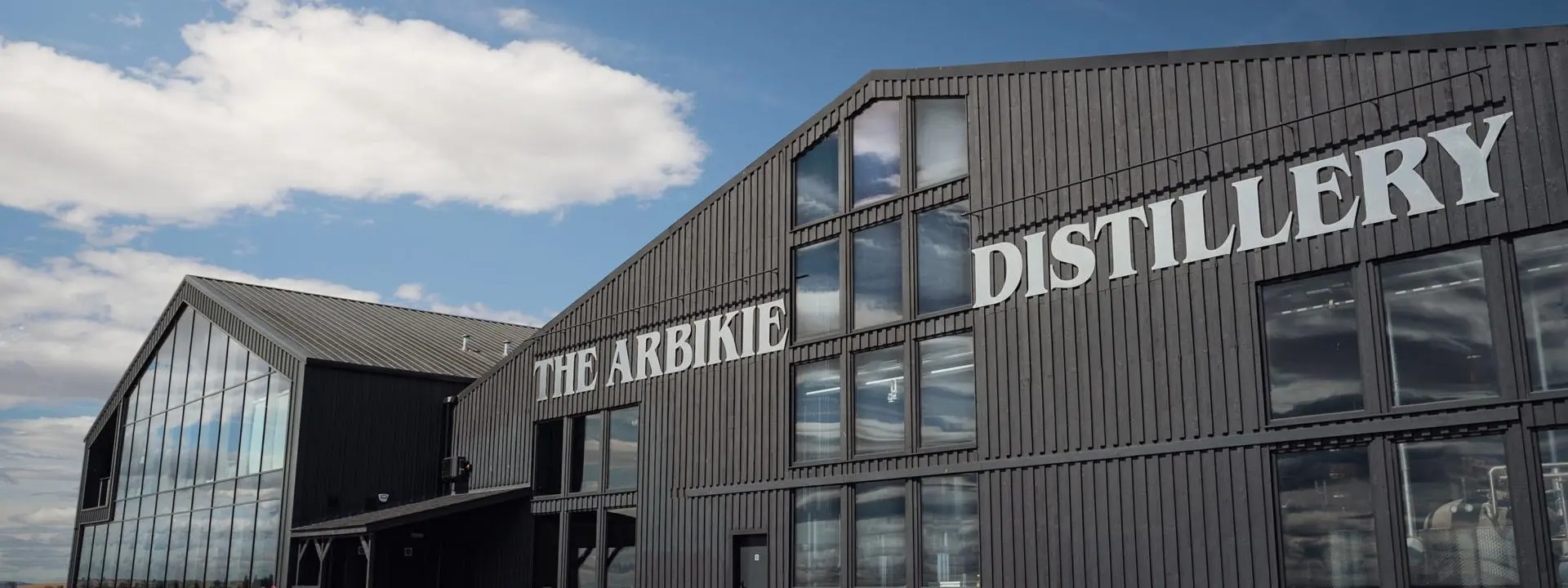Arbikie Distillery explores climate-positive whisky using heritage barley

Scotland’s food and drink industry faces increasing pressure to decarbonise. For Arbikie Distillery, a sustainable farm-to-bottle business on the east coast of Scotland, that challenge is central to its operations. The team wanted to explore how heritage barley varieties—known historically for shorter growing seasons and fewer chemical inputs—could reduce the environmental footprint of whisky production without compromising quality.
“Sustainability is at the heart of everything we do,” says Kirsty Black, Arbikie’s Distiller and Director. “Anytime we make a business decision, we put sustainability on level pegging with the more traditional considerations.”
Blending on-farm innovation with academic expertise
With funding secured via the The Scottish Food & Drink Net Zero Challenge Fund and support from Interface, Arbikie collaborated with Heriot-Watt University. The project drew on Heriot-Watt’s internationally recognised expertise in brewing and distilling to assess the malting performance of a range of heritage and elite barley varieties grown by Arbikie.
“We were looking at older barley varieties and hoped we could do a lower-input malting regime,” explains Kirsty Black. “We knew some things about growing the barleys, but not how they’d perform under these conditions—that’s not something we could have done ourselves.”
At Heriot-Watt, researchers tested how the different barley types responded to a range of malting regimes, measuring quality, efficiency, and suitability for scale-up.
Impact for Arbikie
- Practical insight for full-scale production: Heriot-Watt’s analysis gave Arbikie the data needed to integrate heritage barleys into commercial whisky-making processes.
- Lower environmental impact: The findings support Arbikie’s aim to develop climate-positive spirits using barley varieties that require less fertiliser, less energy, and are more resilient to changing weather.
- Sector-wide relevance: The project contributes to Scotland’s broader net zero goals, offering a replicable model for more sustainable grain use in distilling.
“They did all the studies and produced the report, and now we’re taking that information and building it into our full-scale production,” adds Black.
Watch the video
Looking ahead
Heriot-Watt’s International Centre for Brewing and Distilling (ICBD) already offers end-to-end expertise for businesses in the brewing and distilling industry, from lab testing through to full-scale trials. Its strong focus on sustainability made it an ideal partner for Arbikie’s ambitions.
"The project has allowed for development of a research theme of increasing relevance to the malting, brewing, and distilling industries, and it's rewarding to see the outcomes so rapidly impact raw material strategy at Arbikie Distillery. We hope to be able to continue this collaboration with further projects around barley/cereal sustainability. — Dr Calum Holmes Assistant Professor in Brewing and Distilling, Heriot Watt University
The success of the collaboration has already informed Arbikie’s full-scale production planning and sparked wider interest in how heritage barley varieties could reshape the environmental footprint of Scotch whisky. As the industry moves toward a net zero future, Arbikie and Heriot-Watt’s partnership provides a model for what responsible innovation can look like.
About Arbikie Distillery
Arbikie Highland Estate is a true field-to-bottle distillery, where every ingredient used in its premium spirits is grown, harvested, and distilled on-site. Drawing on generations of farming heritage and a tradition of distilling that dates back to 1794, Arbikie produces award-winning whisky, vodka, and gin using only the highest quality raw materials grown on its east coast estate. Sustainability is central to the distillery’s ethos, with innovation rooted in a deep respect for the land and a commitment to reducing environmental impact.
The Centre for Sustainable Brewing and Distilling
This project reflects Heriot-Watt’s vision for the new Centre for Sustainable Brewing and Distilling (CSBD) — a global hub for research, innovation, talent, and entrepreneurship. The CSBD will strengthen the University’s support for the food and drink sector’s journey to net zero through applied research, industry partnerships, and skills development. Campaign activity in the year ahead will spotlight use cases like Arbikie’s, demonstrating how academic expertise can help address real-world sustainability challenges across the sector.
Contact
Scott Holmes
Related content

Proofing the future
For over 120 years, Heriot-Watt University has pioneered innovation in brewing and distilling, cultivating global talent and transforming industries. As environmental demands, economic shifts, and skills gaps reshape the landscape, we launch the Centre for Sustainable Brewing and Distilling (CSBD)
